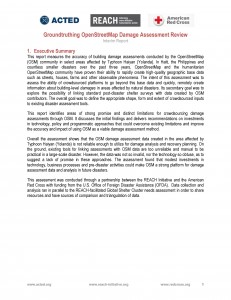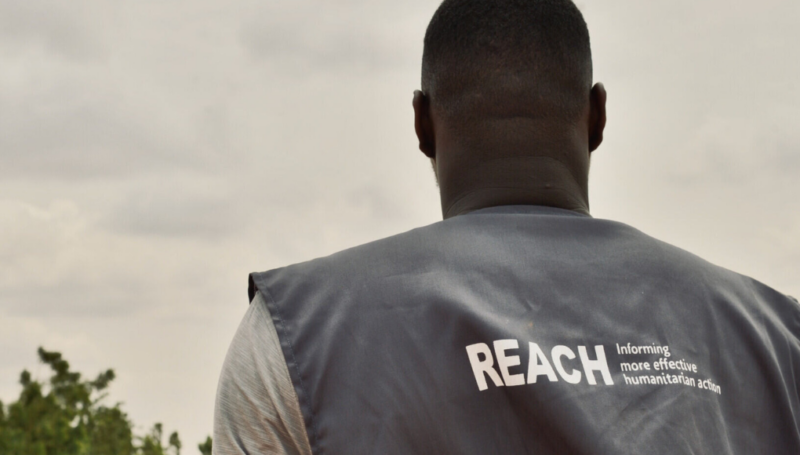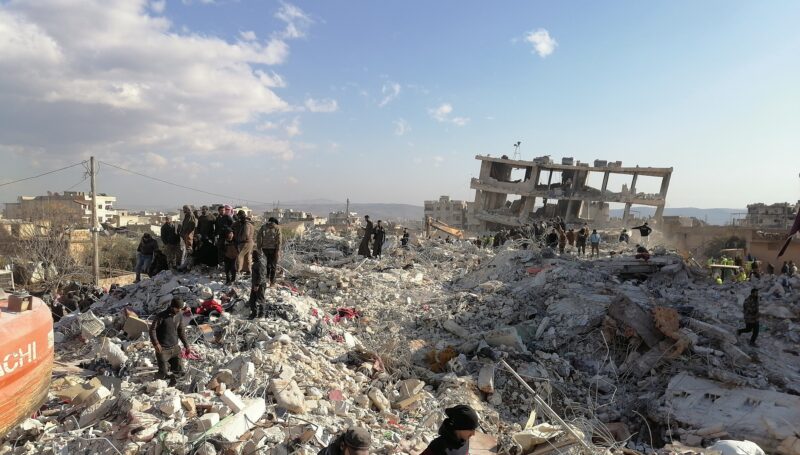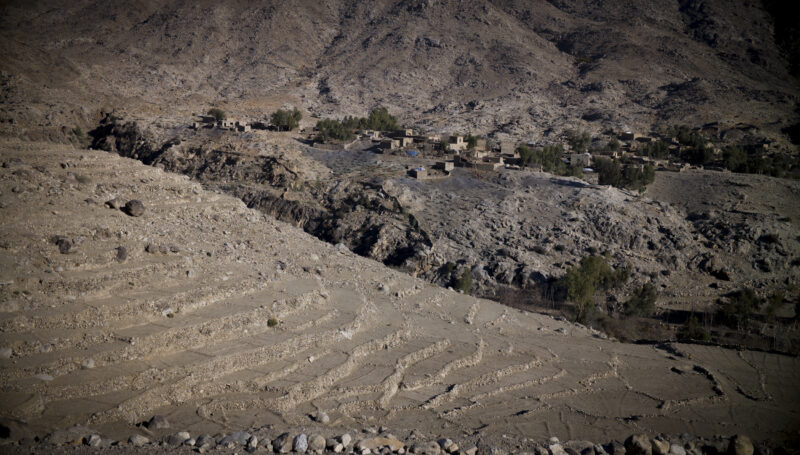Over the past years, crowdsourcing has been a source of information increasingly applied in the aftermath of a disaster, but not yet properly understood. One of the key developments of the humanitarian response to Typhoon Haiyan in the Philippines in November 2013 has been the extensive use of the OpenStreetMap crowdsourcing platform to provide a rapid evaluation of the damages. REACH formed a partnership with the American Red Cross, under the overall banner of the Global Shelter Cluster, and with funding from the U.S. Office of Foreign Disaster Assistance (OFDA), to carry a review of this damage assessment produced by hundreds of online volunteers. This exercise aims at reinforcing local visibility and informing global best practice.
The resulting interim report measures the accuracy of building damage assessments conducted by the OpenStreetMap community in selected areas affected by Typhoon Haiyan. It aims to assess the overall ability of crowdsourced platforms to remotely create information about building-level damages in areas affected by natural disasters. It also seeks to inform the possibility of linking standard shelter surveys with data created by OSM contributors, and therefore define the appropriate shape, form and extent of crowdsourced inputs to existing disaster assessment tools.
Overall the assessment shows that the OSM damage assessment data created in the area affected by Typhoon Haiyan is not reliable enough to utilize for damage analysis and recovery planning. Contributors were unable to view “partial” damages to the sides or insides of buildings due to the inherent limitations of overhead satellite imagery and therefore underreported the number of undamaged or partially damaged buildings by a small but meaningful margin.
However it also found that modest investments in technology, business processes and pre-disaster activities could make OSM a strong platform for damage assessment data and analysis in future disasters.
Considering the success of the assessment through this partnership with the American Red Cross and the Global Shelter Cluster, REACH will keep exploring such collaboration on the ground of new technologies developments to better inform the humanitarian response.
You can access the all report here
To know more about REACH activities in the Philippines please browse to our country page.
To access all of REACH maps and reports about the Philippines please browse to our Resource Centre.









